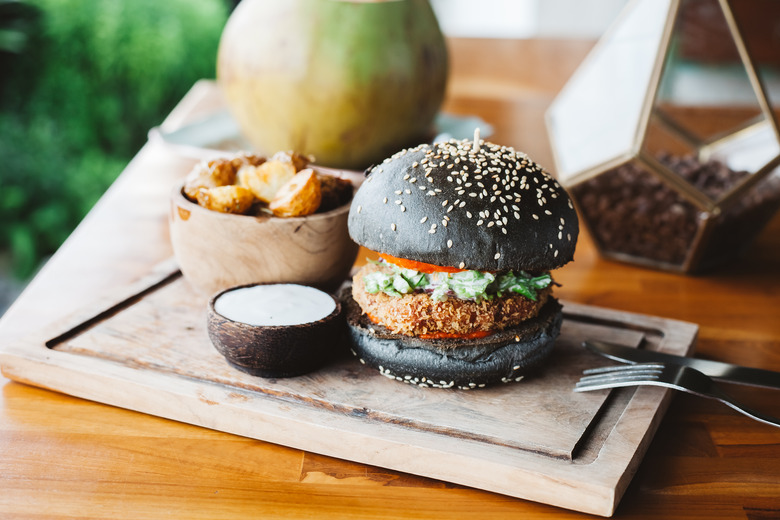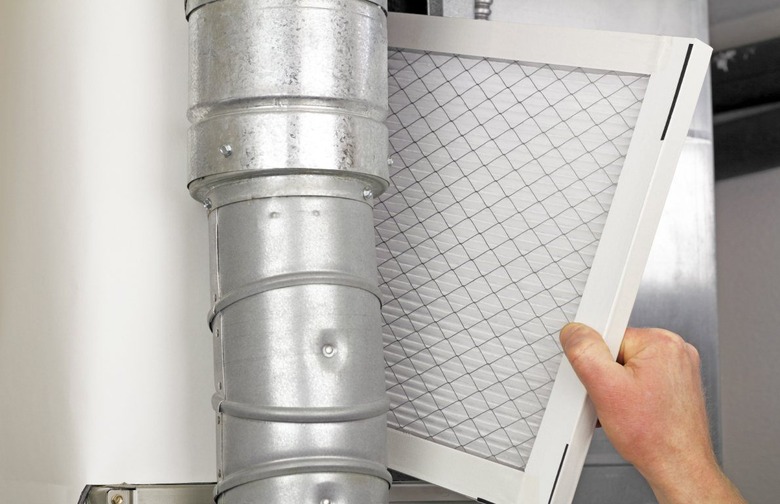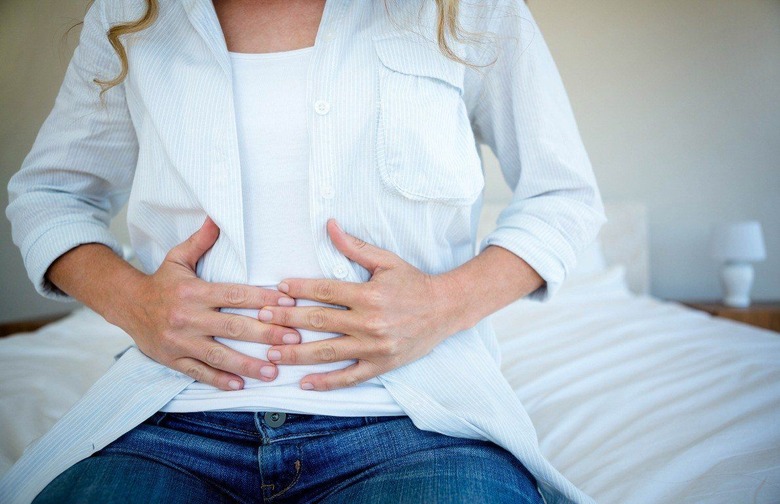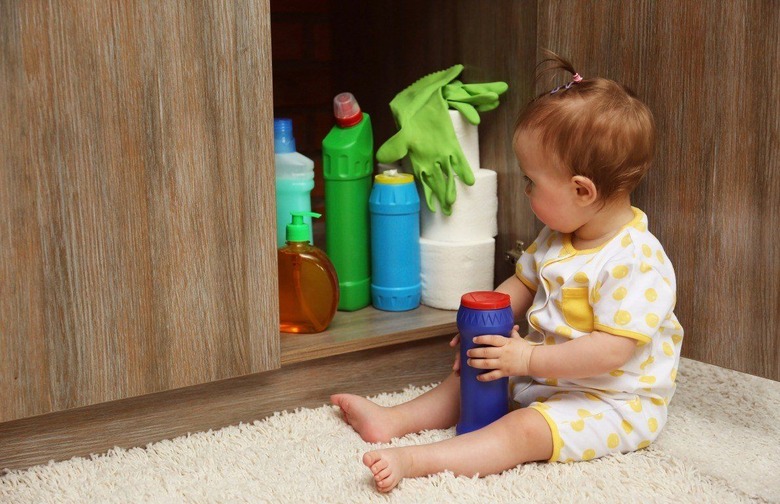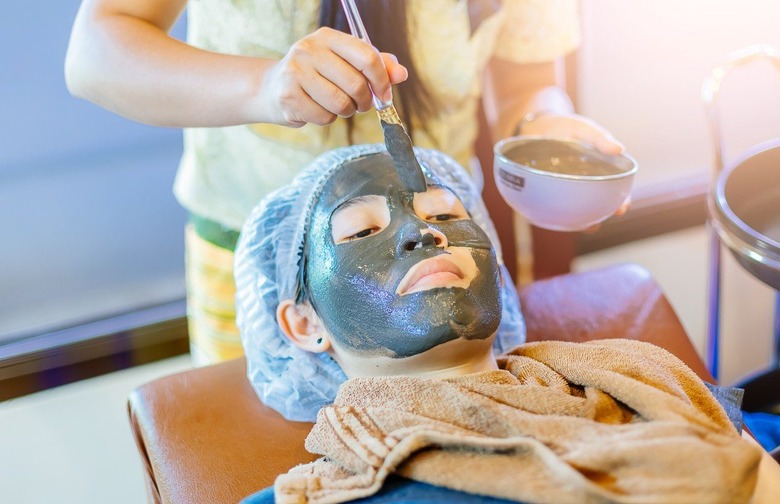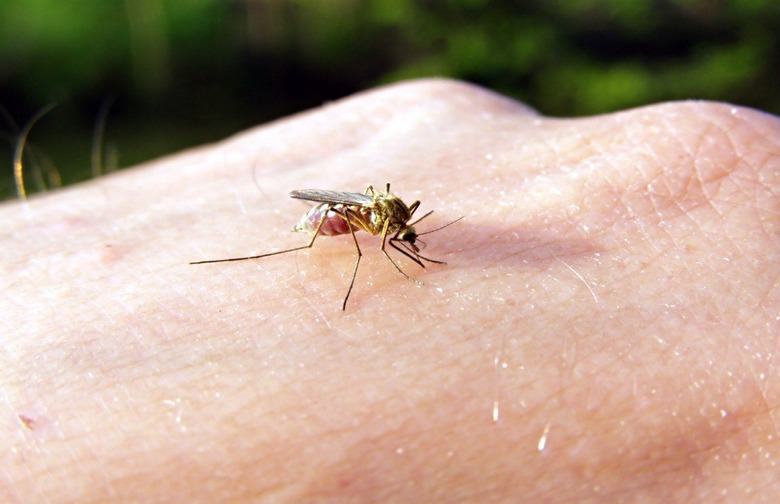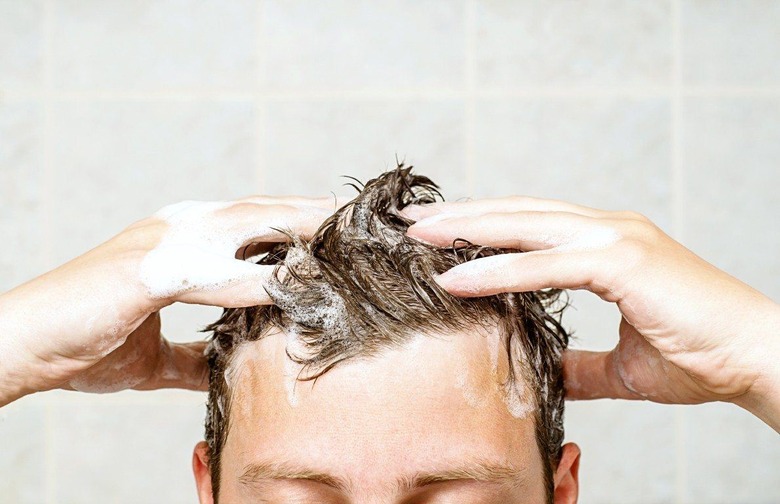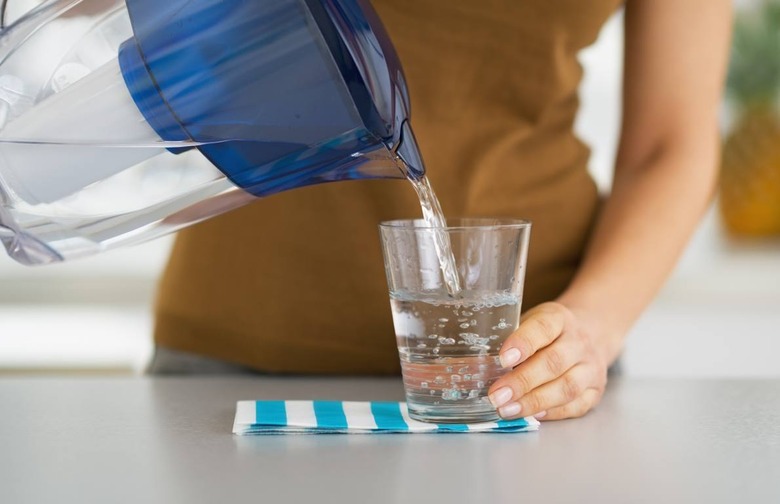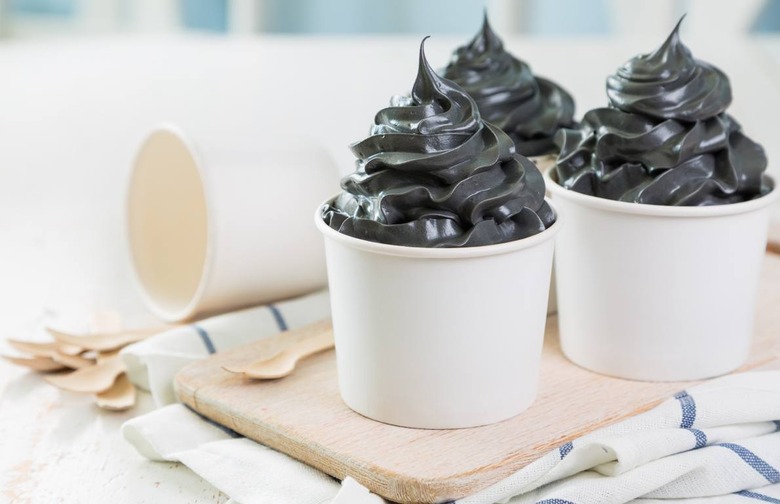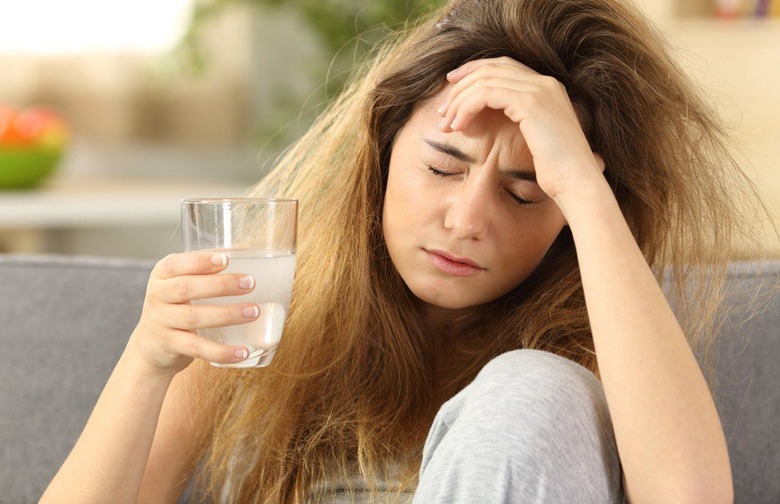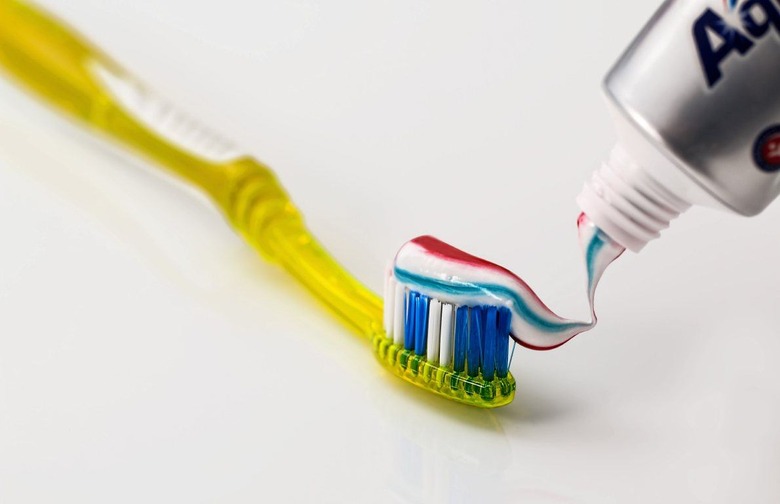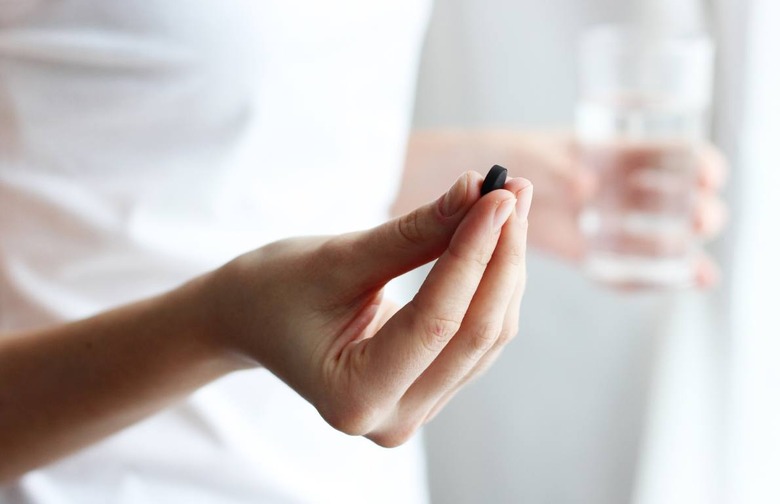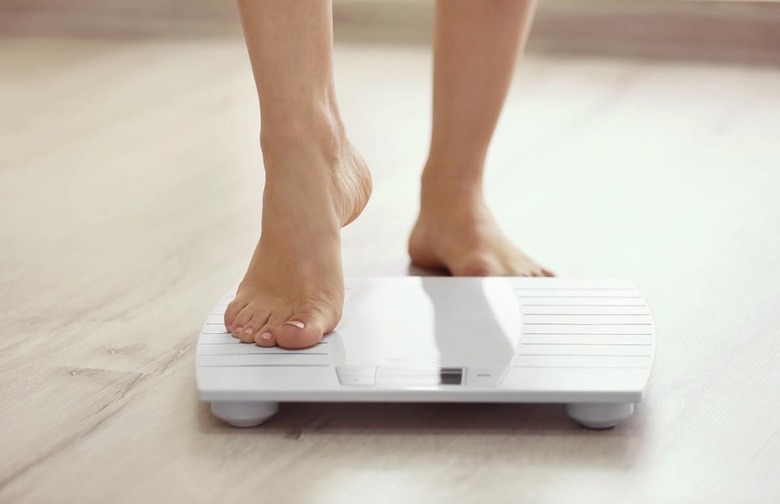The 10 Best And Worst Ways To Use Activated Charcoal Slideshow
We may receive a commission on purchases made from links.
Activated charcoal is experiencing a moment in the spotlight. This distinctive black powder has enjoyed a revival in the health scene — it's being used in soaps, smoothies, and even deodorant. That's right: People are entrusting their body odor to the "cleansing" powers of the ash-like substance. But does the stuff really even work?
The truth is that not very many studies have been conducted to back up the powder's popularity.
Regardless of whether or not it has any scientific backing, it makes for an aesthetically interesting smoothie bowl. Instagrammers, juice shops, and wellness gurus have been tossing the stuff around like confetti, probably due to its visual impact.
The problem arises when people start using the powder in ways that are useless, or even harmful. Many Americans have begun taking pills infused with activated charcoal with hopes that it will help regulate their hormones, clear their skin, and even defy aging. But could these seemingly benign products be doing more harm than good?
Air filter
Activated charcoal can be a powerful tool for eliminating odors from the air. It absorbs the particles in the air that are causing the unpleasant stench.
Recommended
Bloating relief
According to a study published in the American Journal of Gastroenterology, "Symptoms of bloating and abdominal cramps attributable to gaseousness were significantly reduced in both groups by activated charcoal." So if gas has you feeling bloaty, activated charcoal could help.
Recommended
Deodorant
One study utilized activated charcoal to create underwear that successfully reduced odors from farts. Additionally, many anecdotal reports swear by charcoal's efficacy as a more natural alternative to deodorant.
Recommended
Dog deodorizer
Canines are notorious for their smelly gas. In a study published in a 2001 edition of the Journal of American Veterinary Medical Association, researchers discovered that activated charcoal reduced the hydrogen sulfide levels in canine subjects' gas by 71 percent. Hydrogen sulfide is the compound that makes our furry friends' flatulence so unbearable; it might be worth hiding some activated charcoal in a spoonful of peanut butter for your dog's next treat.
Recommended
Emergency poisoning or overdose treatment
Activated charcoal is often used in emergency rooms due to its ability to help eliminate toxins from the stomach. When a patient comes in having ingested a severely toxic substance, if taken quickly enough, activated charcoal can help by absorbing the toxins that remain in the person's stomach. This is also useful for overdose patients or patients experiencing alcohol poisoning, as the charcoal will absorb the drug or alcohol before it is too late.
Recommended
Face masks
Many skincare products, such as face masks and cleansers, contain activated charcoal in the belief that it absorbs dirt and other contaminants from your skin. Dr. Sejal Shah, a dermatological surgeon, agrees. "[The charcoal] basically acts like a magnet for dirt, oil, and other impurities," he explains. "But it depends on physical contact, so it needs to sit on the skin to be effective." Face masks are usually left on the skin for some time, so the use of activated charcoal makes a lot of sense.
Recommended
Insect bite relief
Activated charcoal can be useful for skin irritation, especially in the summer. When a mosquito bites, it injects its saliva into your skin to keep your blood flowing, and the chemical agents involved cause that itchy awful feeling and inflammation. Activated charcoal can work to absorb these allergenic proteins, therefore relieving the itch.
Recommended
Regulation of cholesterol
During one study, activated charcoal successfully reduced LDL (bad cholesterol) and increased HDL (good cholesterol) when participants took small doses throughout the day.
If you do take activated charcoal, just be sure to take it separately from any other medications — it will absorb those, too.
Recommended
Shampoo
Many shampoos, such as Briogeo, a product carried by Sephora, contain activated charcoal and have been reported as a more soothing and natural alternative to harsh soaps in other shampoos. If you are sensitive to the stuff you're getting from CVS, you might want to give this alternative a try.
Recommended
Water purifier
Dr. Josh Axe, a certified doctor of natural medicine, doctor of chiropractic, and clinical nutritionist, claims in his article on activated charcoal that it "traps impurities in water including solvents, pesticides, industrial waste and other chemicals." However, activated charcoal does not rid water of bacteria or viruses, so it might still be a good idea to clean your water using a heftier filter.
Recommended
Anti-gas treatment for children
Some parents, hoping to "cleanse" their child's body of toxins or (similarly to how the substance is used for dogs) reduce the smell of gas, might administer activated charcoal to their child. However, activated charcoal's intense level of absorption can actually be dangerous for infants and small children.
Side effects for adults include diarrhea, stomach pain, and other gastrointestinal issues. For children under the age of three, these effects can be intense and even dangerous.
Not Recommended
Detox agent
Despite the fact that, as stated by Science-Based Medicine, "what's popularly called a 'detox' today has nothing to do with actual medical detoxification," people have been adding activated charcoal to their diet with hopes it will rid the toxins from their bodies.
According to Dr. Mike Roussell, "The idea that activated charcoal ingestion will cleanse your body from the toxins inside doesn't make physiological sense." Charcoal functions to absorb molecules existing in your digestive tract as it passes through. However, it doesn't touch the elements in your bloodstream, organs, or any other part of your body outside the gut and intestine.
Not Recommended
Digestive aid
Despite some popularized theories, activated charcoal does not help to regulate or assist your digestion. It does quite the opposite. Activated charcoal is indigestible, and therefore accumulates in your small intestines. The deposits of charcoal can cause diarrhea, stomach pain, and other issues. Therefore, activated charcoal may actually cause your digestive problems to worsen.
Activated charcoal does, however, work as a laxative for some. If what you need is to evacuate your system, charcoal could be a good (albeit painful) way to do it.
Not Recommended
Food additive
You might have seen black charcoal ice cream cones or smoothie bowls on Instagram lately. There's no doubt that they add a fun twist to the way your food looks. But at what cost?
Not only does activated charcoal cause constipation and stomach pains, it also absorbs the nutrients from your food. Therefore, eating foods that contain charcoal sets you up for indigestion and malnutrition — not ideal after you've just eaten a meal.
Not Recommended
Gluten intolerance aid
One reviewer of the product on Amazon reported using activated charcoal powder to try to fix digestive issues arising from her gluten intolerance.
According to the Mayo Clinic, gluten intolerance occurs when "the immune reaction to eating gluten creates inflammation that damages the small intestine's lining, leading to medical complications." Since charcoal does not have a proven efficacy at reducing inflammation of any kind, these benefits are a fallacy.
"It also prevents absorption of some nutrients (malabsorption)," the Mayo Clinic reports. Since charcoal prevents absorption of nutrients as well, it is the last thing you would want to introduce to a system that is already having trouble with absorption.
Not Recommended
Hangover cure
The myth around this is that activated charcoal cleanses the body completely, including of alcohol. However, once the alcohol has entered your bloodstream (and by the time you have a hangover, the time to prevent that is ancient history), activated charcoal can no longer touch it.
Not Recommended
Juice enhancer
Charlie Seltzer, a Philadelphia-based weight loss expert, spoke to the New York Post on the topic and exclaimed, "This one is stupid even for stupid juice cleanse people." Harsh, but we agree. Charcoal binds to things in your digestive system. This makes it a great candidate for poison control, but makes it unideal for juice. The activated charcoal in a bottle of juice or a smoothie serves only to absorb the nutrients from the blend before your stomach does.
So in essence, activated charcoal makes juices less nutritious.
Not Recommended
Teeth whitener
Ever since Genevieve, the host of a popular YouTube series called Mama Natural, went viral with her endorsement of the method, people have been trying to make their teeth lighter and brighter with dark and dim charcoal. In fact, there is no evidence that proves charcoal has any effect on teeth whiteness. There is, however, reason to suspect that charcoal could harm your teeth by leaving tooth enamel prone to erosion.
Dr. Susan Maples, dentist and author of Blabber Mouth!: 77 Secrets Only Your Mouth Can Tell You to Healthier, Happier, Sexier Life, expressed her concern on the issue in a report to Fox News. "When you lose enamel, teeth get sensitive and darker in color because you're close to the part of the tooth that has the depth of the color," she explains. "Since you can't grow it back, the only thing you can do is cover it up with restoration."
Not Recommended
Vitamin supplement
A popular trend is to take activated charcoal pills daily. However, if taken alongside your other multivitamins, the absorbing power of activated charcoal works to your disadvantage. The charcoal will absorb the vitamins you take with it, preventing your body from receiving any benefit.
Not Recommended
Weight loss enhancer
It's been rumored that clay made with charcoal "fills you up and binds toxins and metals in your body," as the Huffington Post reports. This rumor has paved the way for charcoal clay diets, wherein participants eat chunks of clay and charcoal in efforts to lose weight.
However, this is not only ridiculous and (if you ask us) pretty gross — it's also dangerous. Clay isn't meant to be ingested and can cause severe gastrointestinal issues.
Not Recommended
